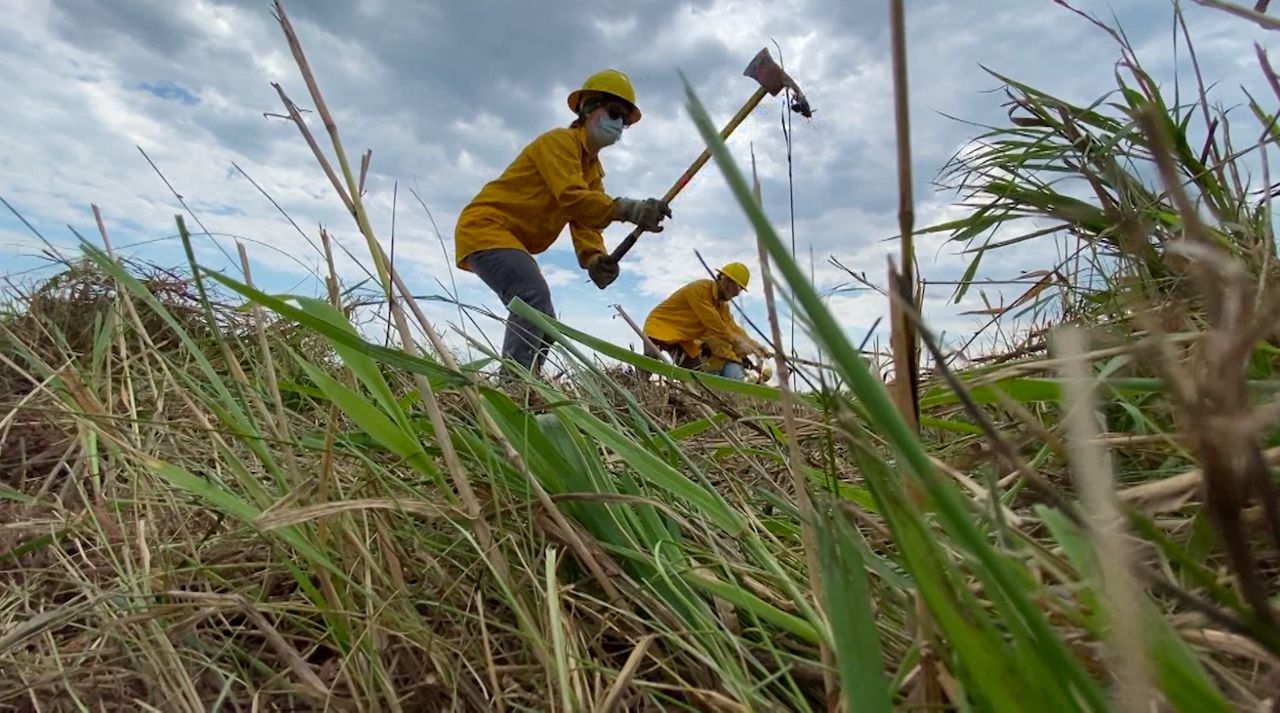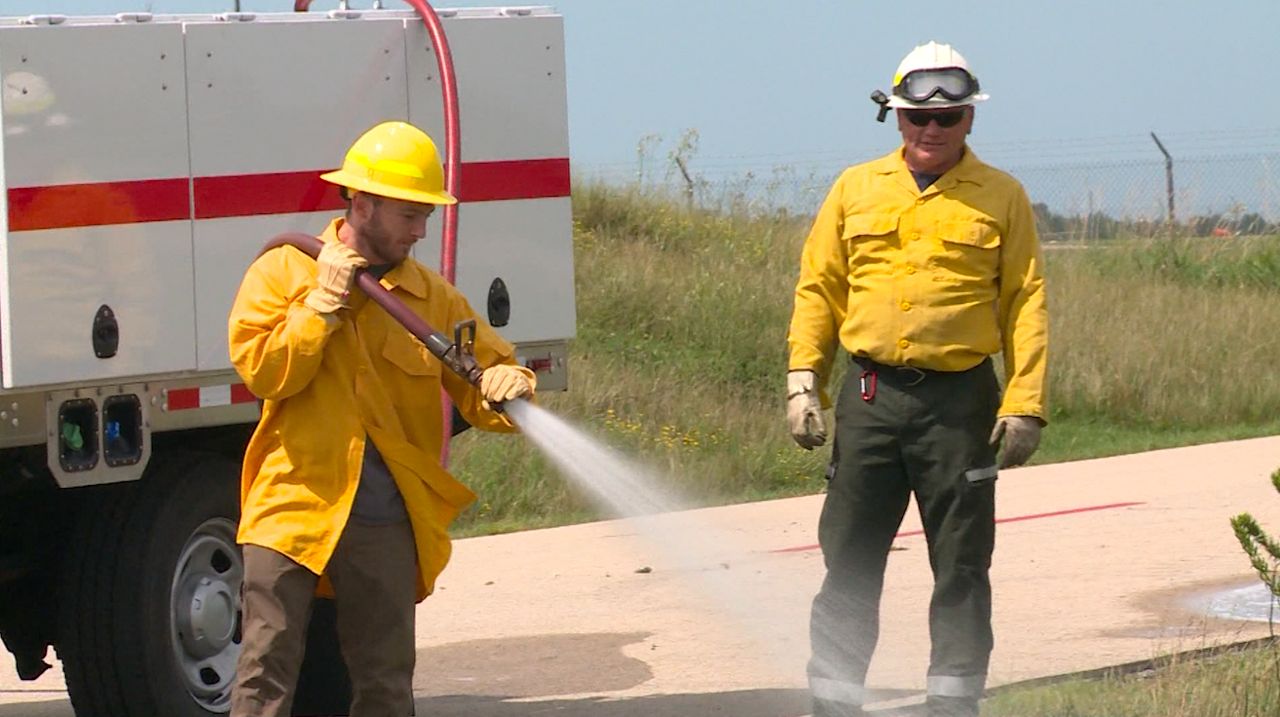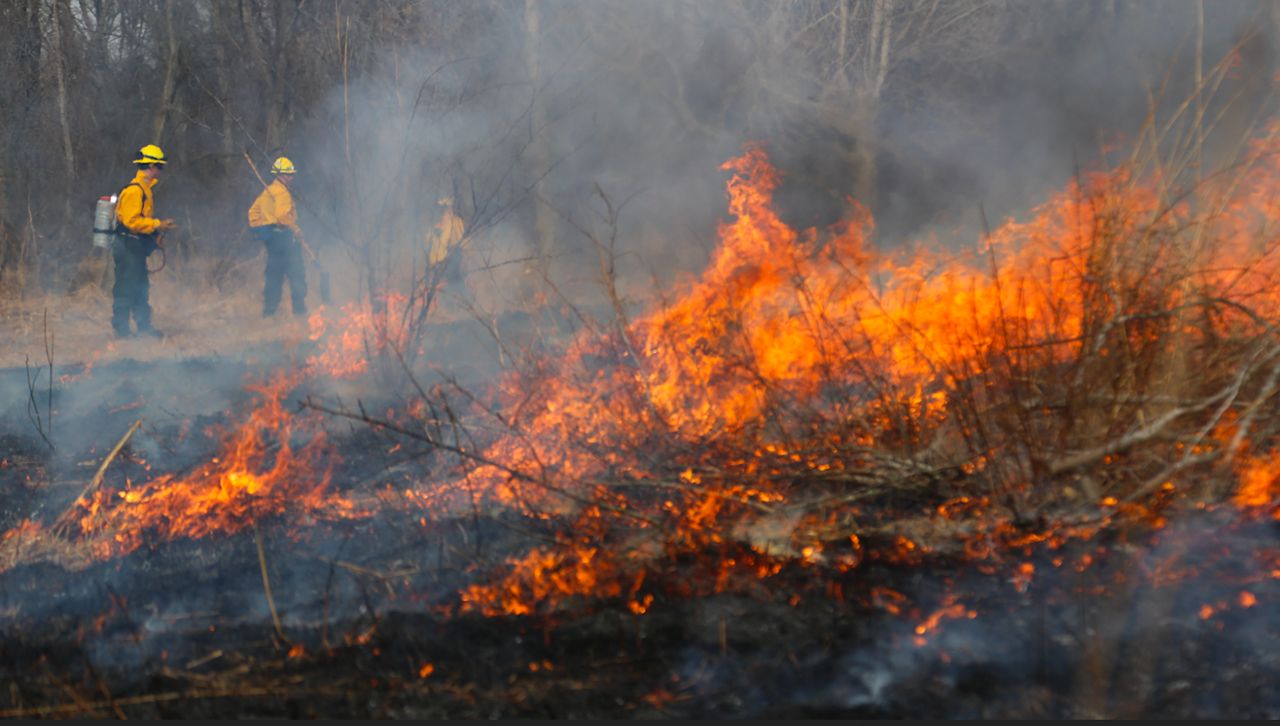APPLETON, Wis.— When wildfires rage in western states, firefighters are called on to battle the flames. Some of them are from Wisconsin, where they got their training at Fox Valley Technical College in Appleton.
It is the only program in the state to offer an associate's degree in Wildland Firefighting. Graduates will face a difficult and dangerous career.

“This is a physically demanding field,” said Jon Kellermann, FVTC Wildlife Fire instructor. “Long hours away from friends and family. Seasons can get really, really long.”
Fire season traditionally lasted about six months.
“Now it’s become more of a year-long thing,” said Kellermann. “It’s not just a fire season, it’s a fire year now.”
That hasn’t deterred FVTC students who recently started up their training. Hot days of digging fire lines with hand tools give them a taste of what may come.

“It is a lot of work. I’m sweating,” said Jade Besson, 17-year-old Wildlife Fire student. “I’m a little tired but I realize days out in California, you get less than eight hours of sleep. You can work 20+ hours a day.”
FVTC said the demand for wildlife firefighters is high.
“They are almost guaranteed a job,” said Kellermann. “Almost every state in the western U.S. will have a Fox Valley Tech student there.”
“Coming out here and doing this kind of work I wasn’t quite ready,” said Lucas Stabenau. “You have to pass a pack test every year to be physically fit for this job. I think I’m going to have to get a gym membership.”
Stabenau is a conservation biologist for the DNR. After this training, he’ll be able to help with prescribed burns which help to rejuvenate natural habitats. He knows Wisconsin has terrain advantages over many western states when it comes to wildfire.

Photo Courtesy FVTC
“In Wisconsin, we have a lot of flat land where you can just use a lot of water and mow your breaks in,” said Stabenau. “When you’re out west up in the mountains where you can’t use machinery, you have to use actual manual labor.”
The hard and dangerous work of fighting wildfires turns many off. Besson, who recently graduated high school, doesn’t want it any other way.
“I love the unpredictability of it. That just keeps me going forward,” said Besson. “It gives me the adrenaline. It gives me that extra push to do what I love to do. Our mission is to prevent people from dying, save their property and save their livelihood.”
The hard work put in on the FVTC training grounds should serve the students well when they’re called upon.



